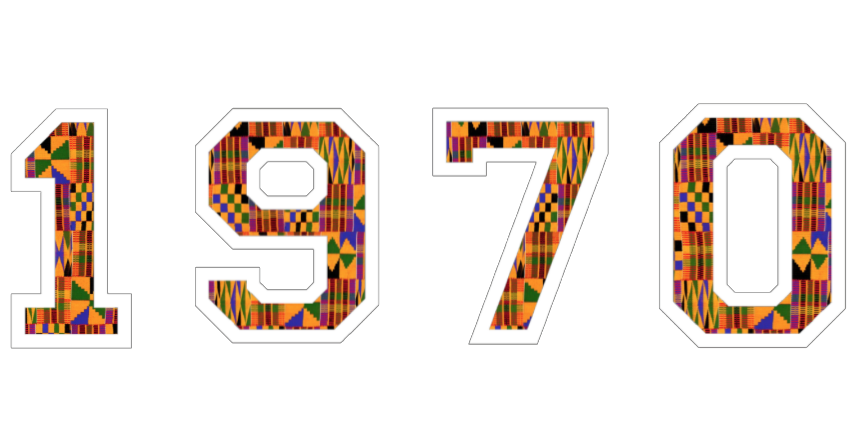Community Service Through the Legal Assistance Society
Alongside BALSA’s main goals of increasing student and faculty diversity, BALSA’s founding members forged their community of action through legal aid. During the 1971-1972 academic year, BALSA members recall engaging in pro bono work to provide legal counsel to underserved communities, particularly through collaborations with local legal aid groups like the Charlottesville-Albemarle Legal Aid Society (now the Legal Aid Justice Center, founded in 1967 by a group of Charlottesville attorneys and UVA Law students) and the Law School’s Legal Assistance Society.
Bobby Vassar ’72, James Ghee ’72, and Gwendolyn Jones Jackson ’72 were among the founding BALSA members who participated in the Legal Assistance Society, particularly the Society’s Welfare Rights Project. The Project partnered with the Virginia Welfare Rights Organization to assist Virginia residents who requested welfare assistance, were denied, and then exercised their right to a fair hearing to reverse their verdict. Law students conducted legal investigations and advocated for their welfare candidates before a panel of local welfare officials and a hearing officer appointed by the Virginia State Board of Welfare. Project members represented Virginia residents from Albemarle, Buckingham, Cumberland, Fauquier, and Greene counties, as well as residents from the cities of Charlottesville and Lynchburg.
“There were very few Blacks on the [welfare] rolls in these counties because Black women with children were expected to be maids and cooks in White homes or to do other menial labor jobs, so only a few of the most disabled women with children were considered worthy of receiving Aid to Families with Dependent Children (AFDC, now TANF). In several instances, all or some of the local Social Services Board members attended the hearings. Things got testy in some the hearings with one Board Chairman telling Jim Ghee “I think you done said about enough there, boy”, which prompted the State hearing officer to warn him he would clear the room if there were any further such outbursts. We were able to win benefits for almost all of the families we represented as a result of favorable hearing decisions, and that encouraged other eligible Black families to apply and receive benefits.”
—Bobby Vassar ’72, personal correspondence with Allison Burns ’22, 11 February 2021.
Ghee served as the project’s director from 1971-1972, even traveling to Las Vegas, Nevada in February 1971 to assist the National Welfare Rights Organization in reversing Nevada’s cut-off of a portion of the state’s welfare payments.
"We knew the risks and we were willing to take them."
Outside the Legal Assistance Society, Vassar recalled working with then-ACLU attorney John C. Lowe ’67 and fellow BALSA members James Winstead ’72, S. DeLacy Stith ’72, and William “Joe” Bass ’72 to research juror discrimination in Central Virginia. Dean Monrad Paulsen provided the law students with a letter to show local clerks of court explaining that they were part of a UVA Law-sanctioned research project. The letter allowed them access to jury rolls in six surrounding counties.
“We would use the letters to gain access to the jury rolls to write down the names and then go meet with a pre-arranged group of local Black residents to go over the names to identify whether any of them were Black. The clerk in one county (Nottoway) became suspicious of our group of 4 Blacks and one White after seeing us writing down the names of jurors and actually called the Dean, but was not satisfied with the Dean’s explanation, so closed the office, kicked us out and called the sheriff, town police and state police. We were at the pre-arranged home going over the names we were able to write down so they were not able to find us at first, but once we got back on the highway headed home, one of the officers spotted us, called the others, stopped us and surrounded us with 3 cars of officers who got out with hands on guns to ask us what we were doing. They made us get out of the car and not accepting our “research” story, they took the White student aside and quizzed him on what he was doing with these “colored boys” and how he was making himself look bad and could get in big trouble doing such things. He held to our story and they finally let us go with a warning to us not to return. It was plenty scary, but we knew there were risks and were willing to take them.”
—Bobby Vassar ’72, personal correspondence with Allison Burns ’22, 11 February 2021.
Vassar recalls that as a result of their research, Lowe was able to file a settlement with the six counties involved to desegregate their jury rolls.
BALSA Embarks on Independent Service Projects
In October 1975, BALSA members took strides to implement the organization’s founding goal of providing community service to Charlottesville residents. Nine BALSA members, led by Terry Medley ’77 and William Robinson ’77, established a legal assistance program for Westhaven, a public housing community in Charlottesville.
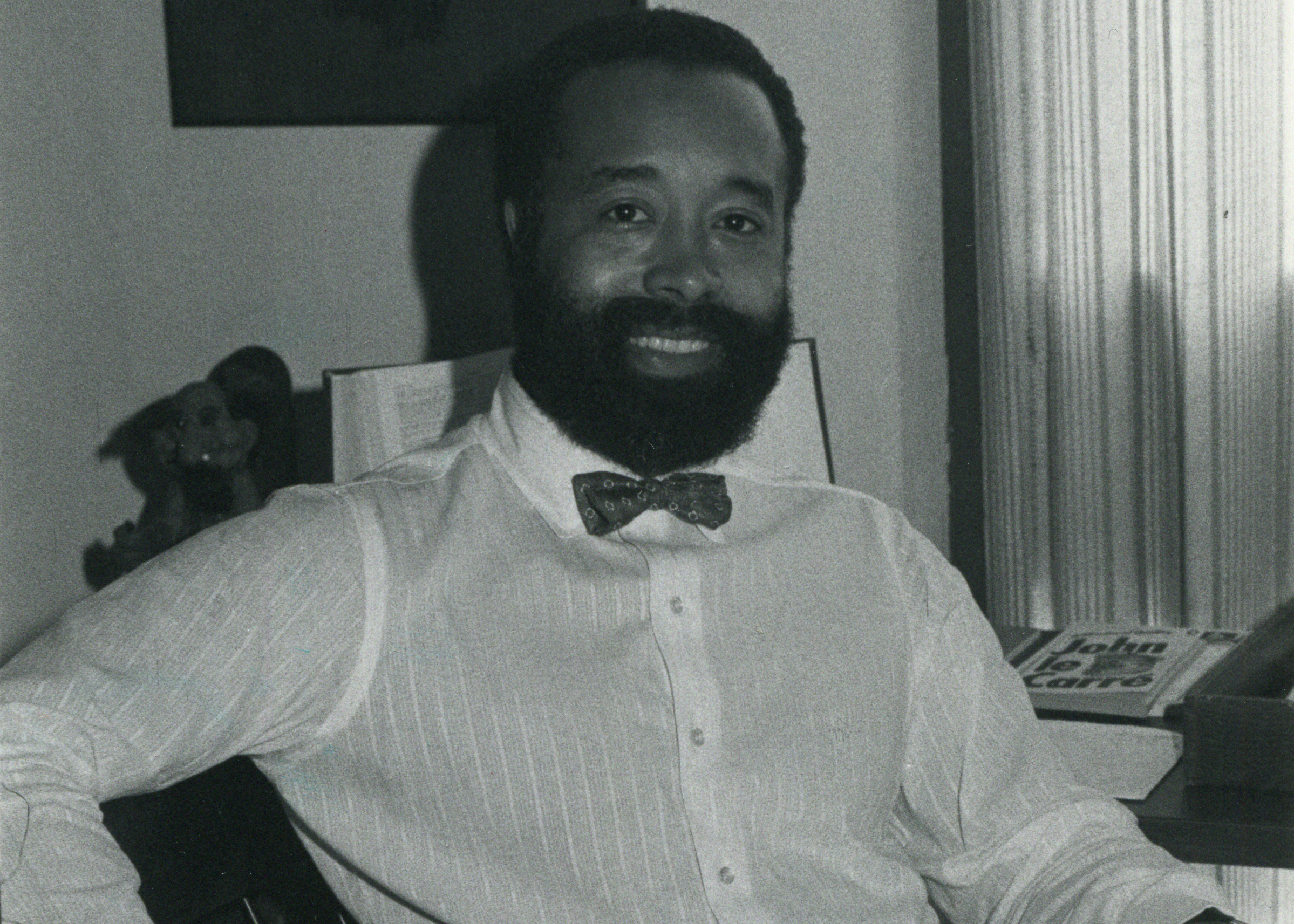
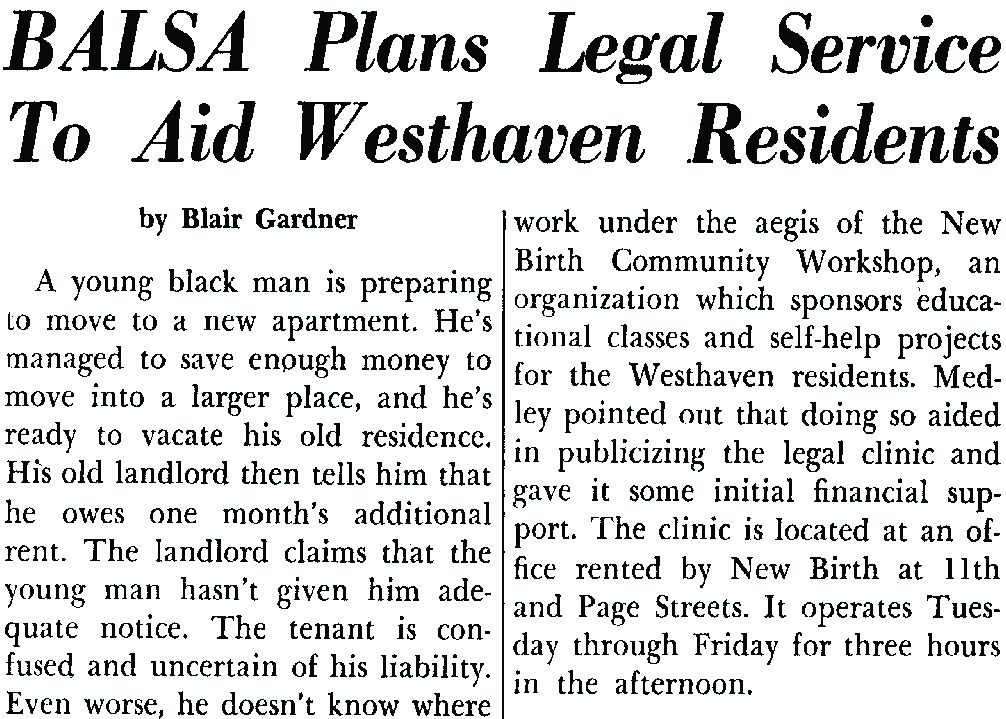
Repeated unrest between Westhaven residents and police, and the lack of legal representation for Westhaven residents, signaled to Medley and Robinson the need for these legal services. During the previous spring and summer, the Safeway grocery store on the edge of the Westhaven community became a focal point for protests over claims that the store had refused to hire Black employees and was disproportionately targeting Black shoppers for shoplifting. In July 1975, Charlottesville and state police swept the Westhaven community, firing tear gas and making arrests in the aftermath of a Safeway protest about police brutality during which a police officer had been shot. During their summer work at the Charlottesville Legal Aid Society in the wake of these Westhaven protests, Medley and Robinson noticed that the Westhaven community’s legal matters and concerns were not making it to the Legal Aid office.
After discussing the plan for a legal clinic with area residents, the mayor’s office, and community organizations, Medley and Robinson set up the new office at the corner of 11th and Page Streets. It would serve a wide swath of Charlottesville, from 4th to 14th streets, and from West Main to Route 250. In conjunction with Charlottesville’s Legal Aid Society and the New Birth Community Workshop (an organization that sponsored educational classes for Westhaven residents), the legal clinic concentrated on poverty law, particularly landlord-tenant law, debtor-creditor rights, personal injury law, and welfare rights. It provided legal advice to Charlottesville residents who did not meet the maximum income requirement set by Legal Aid and for whom the walk to the downtown Legal Aid office deterred their seeking assistance.
Funding came from the Law School Division of the American Bar Association, and BALSA members were quick to sign up to staff the clinic. Medley and Robinson limited participation to second and third years. BALSA members who signed on to assist with the clinic as it opened included Chris Williams ’76, Jim Naggles ’76, Beverly Burton ’77, Patricia Johnson ’77, Jacy Thurmond ’77, Bernard Holmes ’77, and Calvin Williams ’77.
Legacy of Local Service
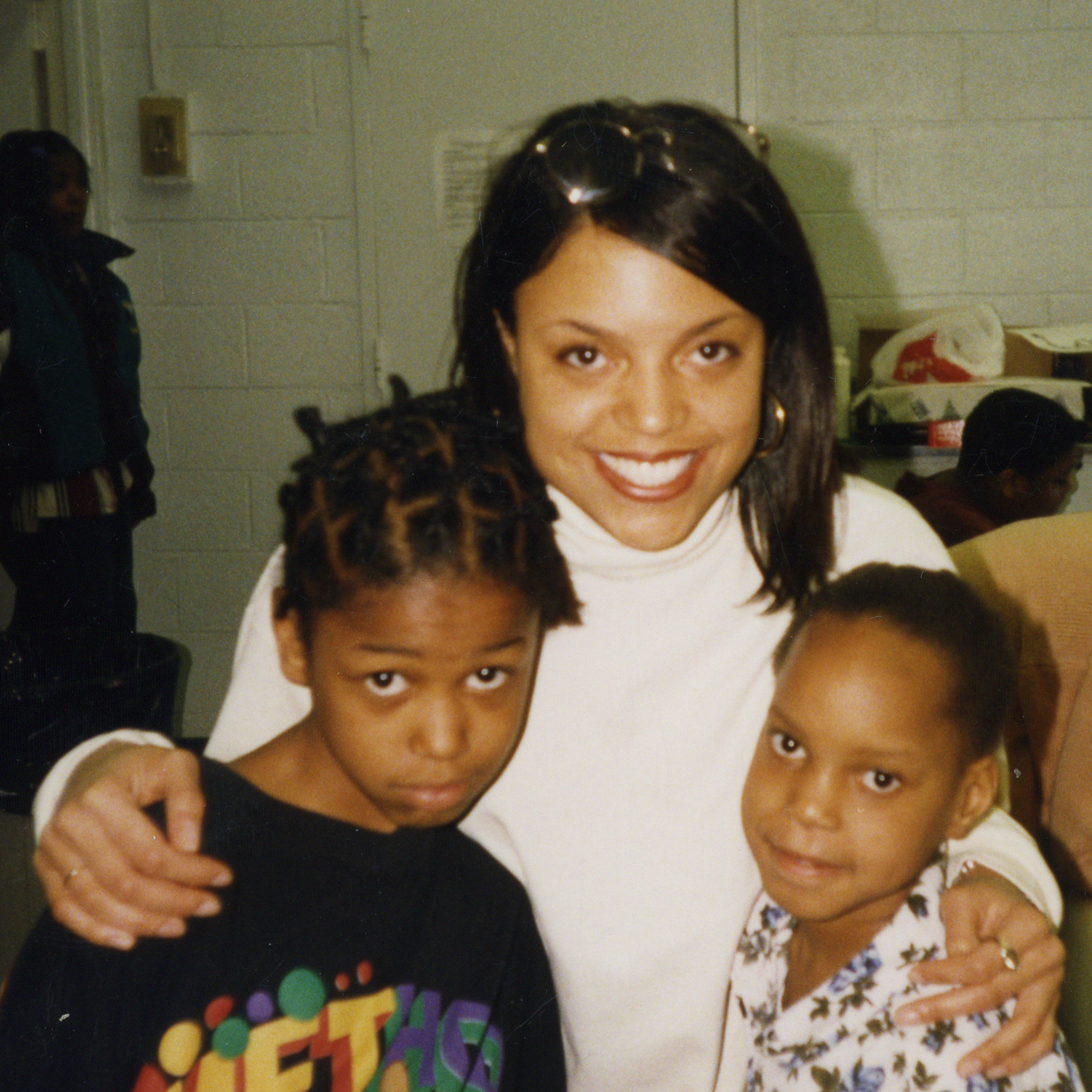
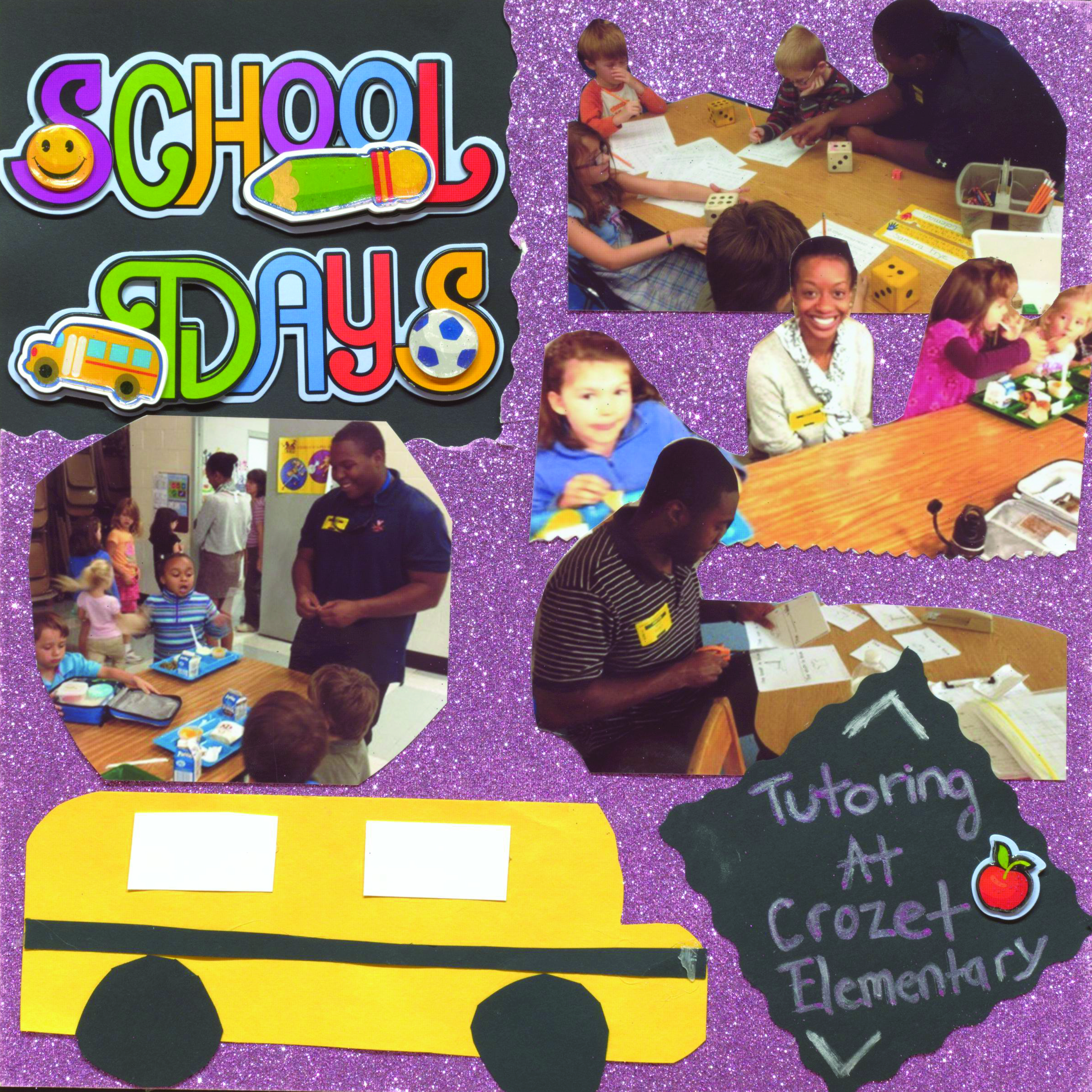
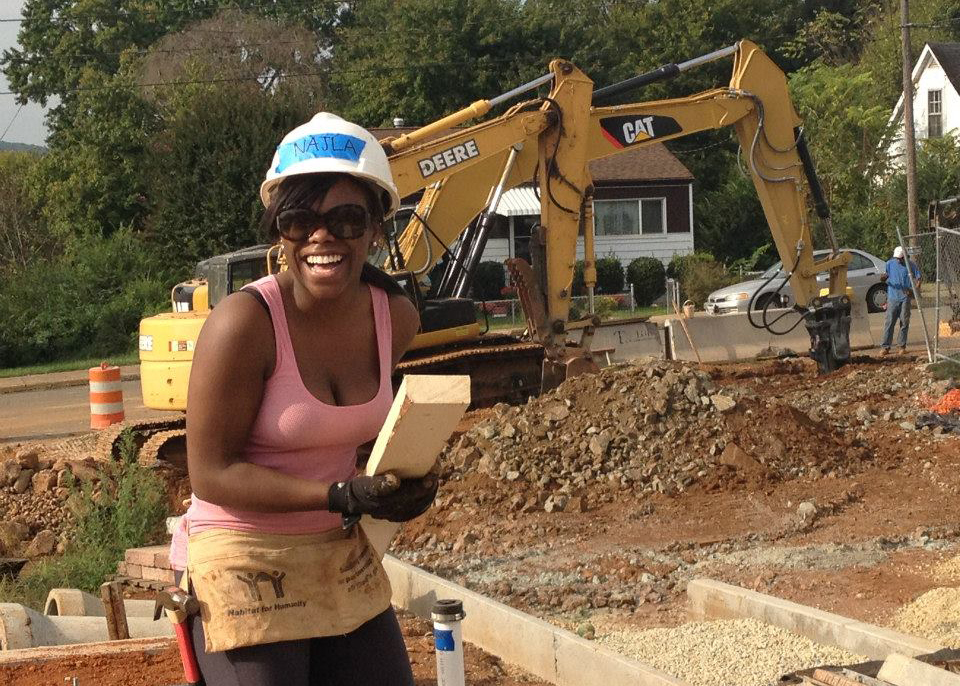
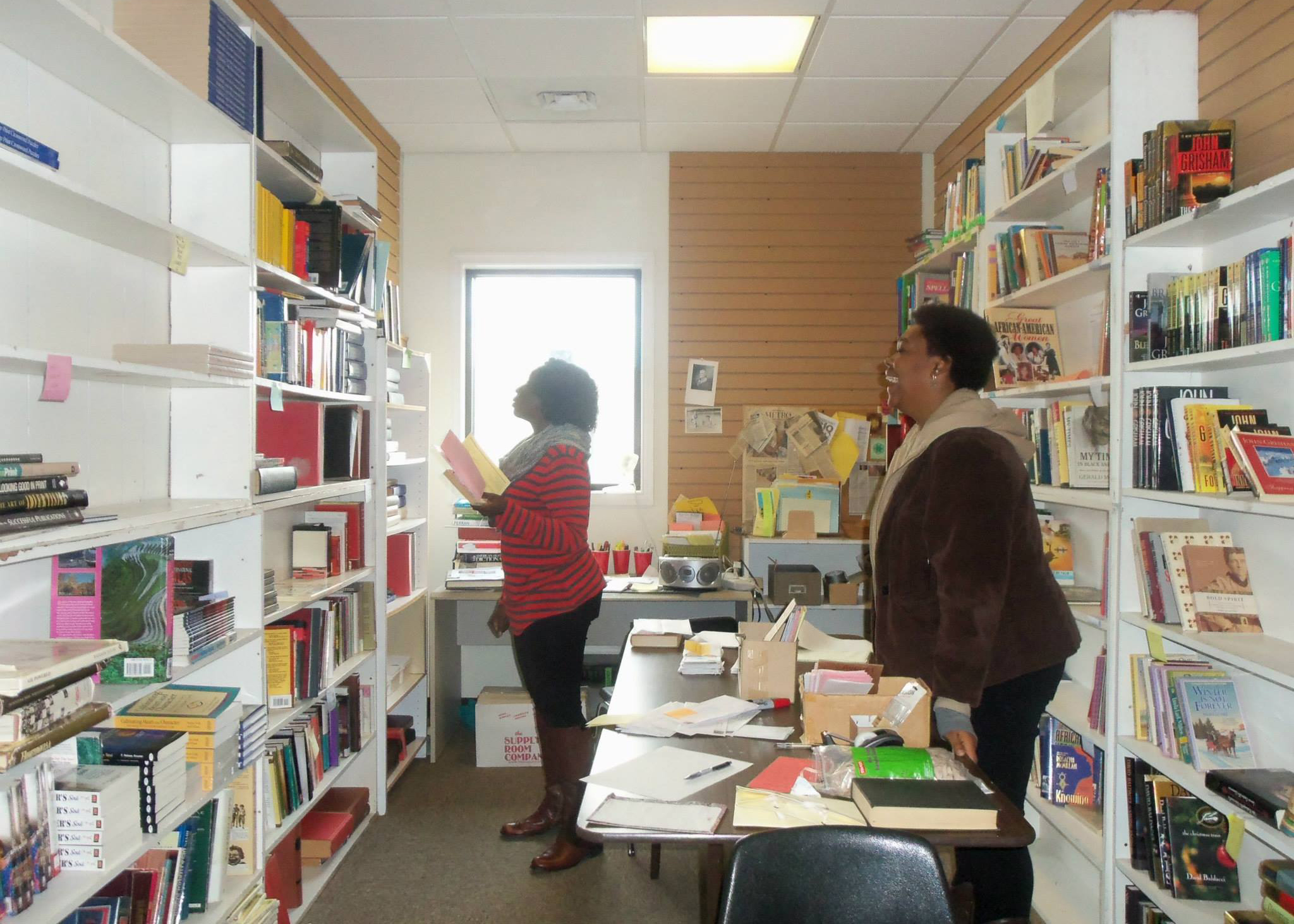
In the decades that followed BLSA’s service with Westhaven, BLSA members have further expanded their outreach efforts to assist many sectors of Charlottesville’s community. BLSA mentors students of all ages—from the Buddy Program, to informative panels for undergraduates, to orientation events for 1Ls—to ensure that Black students feel welcome at the University and in Charlottesville. BLSA joins forces with charity groups, like Habitat for Humanity, the Salvation Army, and Books Behind Bars, to give back to the city. The organization also runs its own charity events, like the Community Bridges 5K and Children’s Book Drive. During the COVID-19 pandemic of 2020-2021, BLSA worked with the Virginia Poverty Law Center to help elderly, disabled, and low-income community members stay in their homes and fundraised to support remote learning at two local elementary schools.
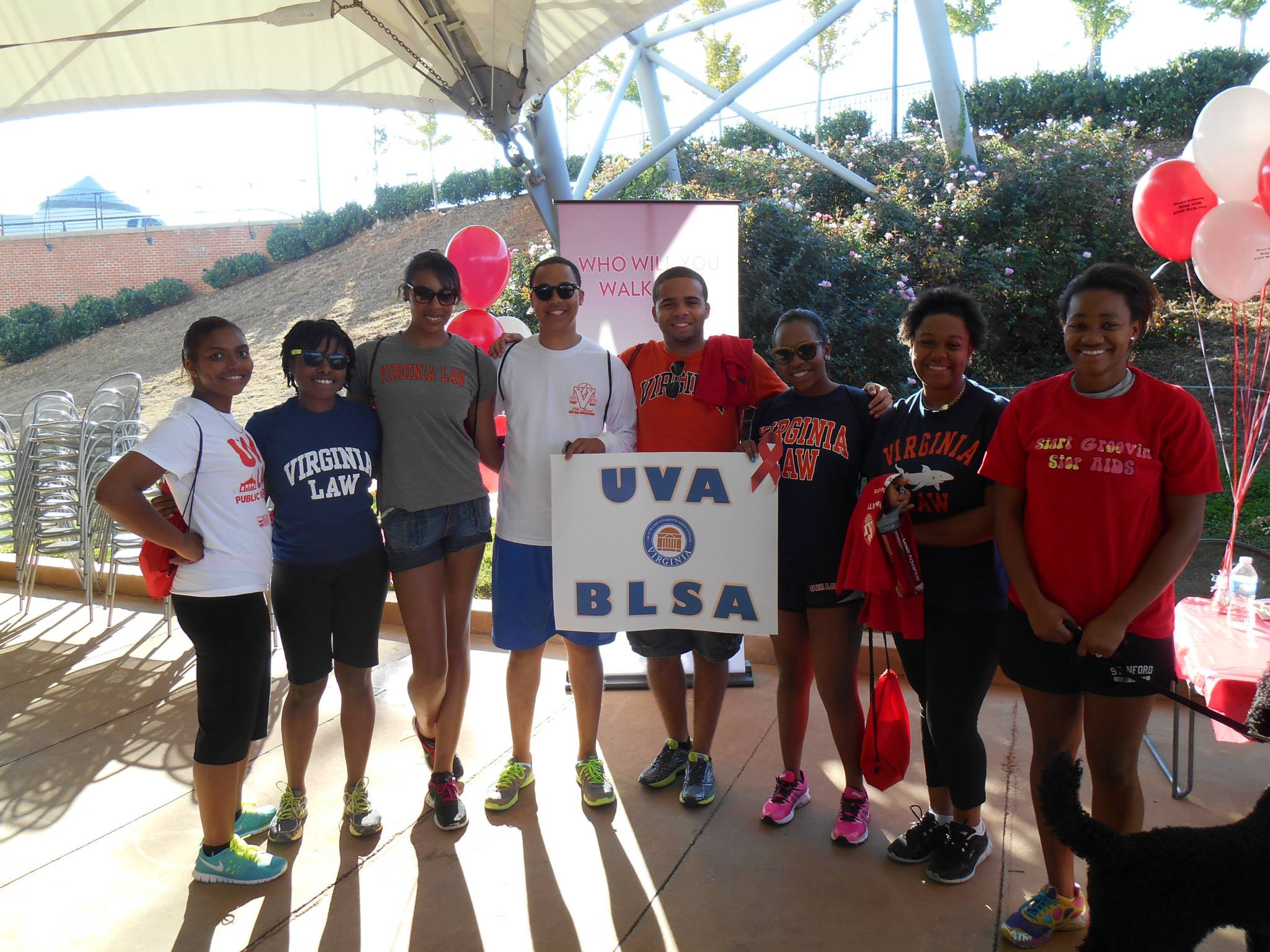
International Service Trips
In 2011, BLSA started an annual international service trip over the winter break through which members contribute pro bono work to communities around the globe. In the aftermath of the 2010 earthquake in Haiti, eight BLSA members traveled to Port-au-Prince to investigate cases of domestic violence in displacement camps. The students interviewed Amarick Louis, the Secretary of Public Security, and Yolette Mengual, the Chief of the Cabinet of the Ministry of Women, among other government officials. The cohort also met with grassroots organizations which provided services for domestic abuse survivors. When they returned to the Law School, the students compiled a report and conducted a panel to report their findings.
BLSA’s trip to Haiti began a tradition of international service. Members of the organization have since traveled to Liberia (2014), Uganda (2015), Tanzania (2017), and South Africa three times (2018, 2019, 2020). Working with partner organizations such as the Lawyers without Borders, Norton Rose Fulbright, and the International Law Institute’s African Center for Legal Excellence, BLSA participants have completed a wide variety of pro bono service work on these trips. Projects have included raising awareness of human trafficking in Liberia, addressing human rights issues in the Ugandan judiciary, and preparing affidavits for families in Cape Town who were displaced from their homes during apartheid.
From the Archives: Service Slideshow
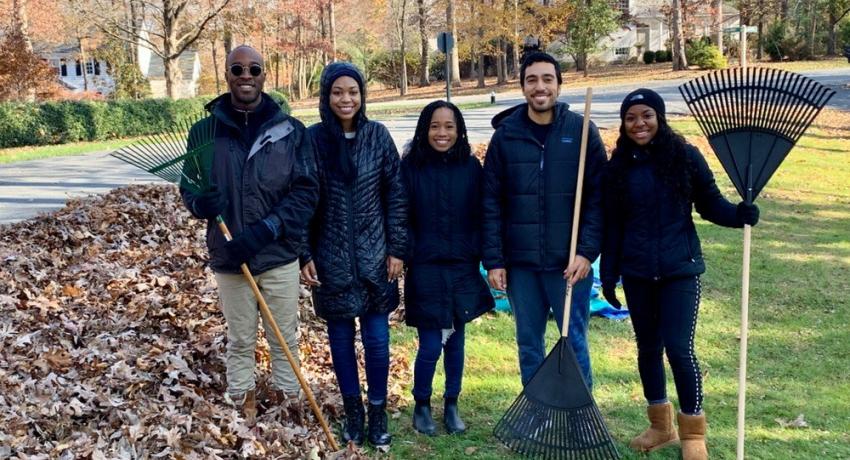
BLSA Community Service, 2020
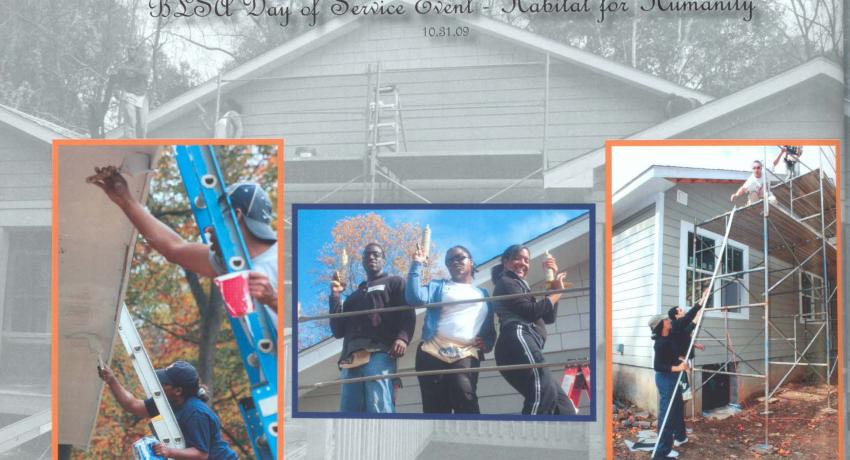
BLSA members helped construct affordable housing with Habitat for Humanity, 2009
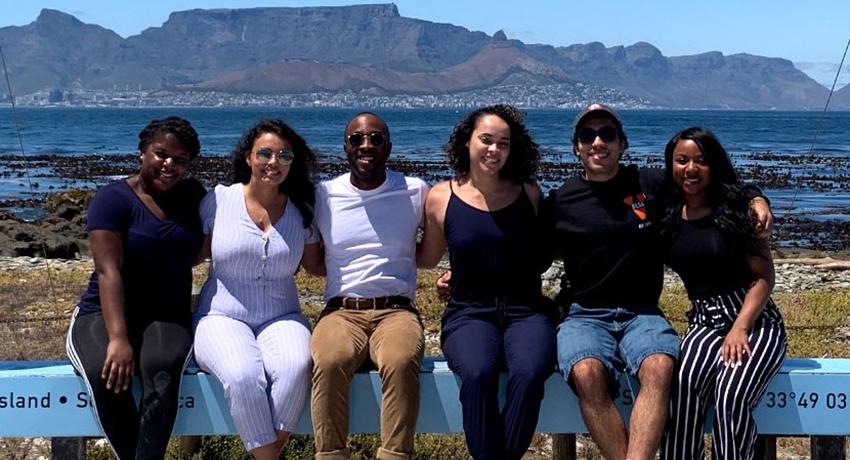
BLSA Service Trip, South Africa 2020
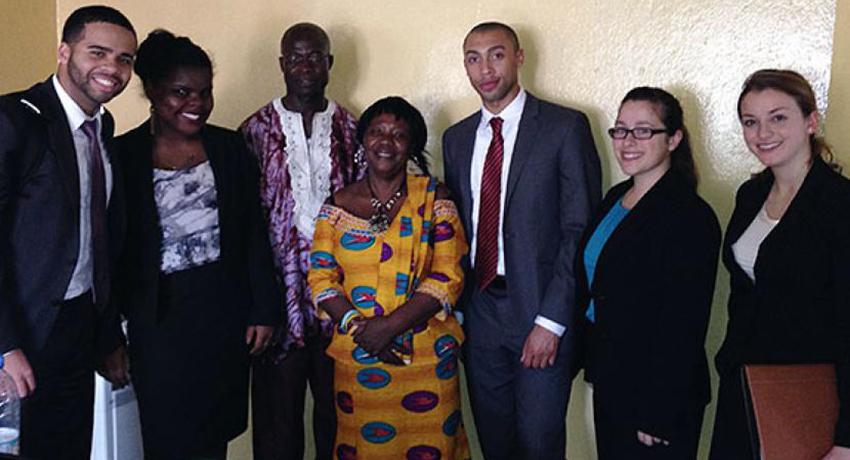
BLSA Service Trip, Liberia 2014
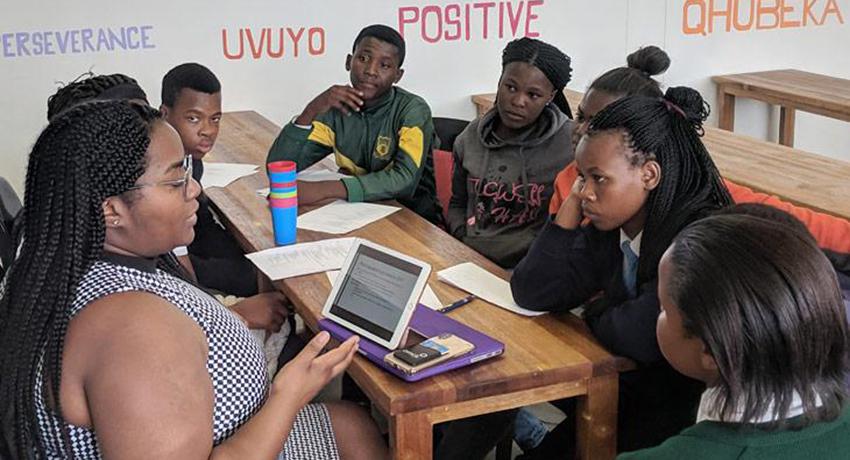
BLSA Service Trip, South Africa 2019
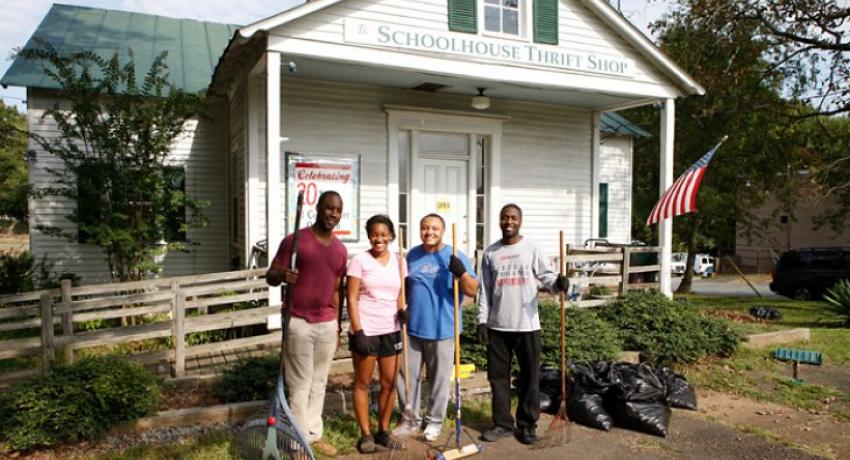
BLSA members clean up outside the Schoolhouse Thrift Shop in Charlottesville, 2012
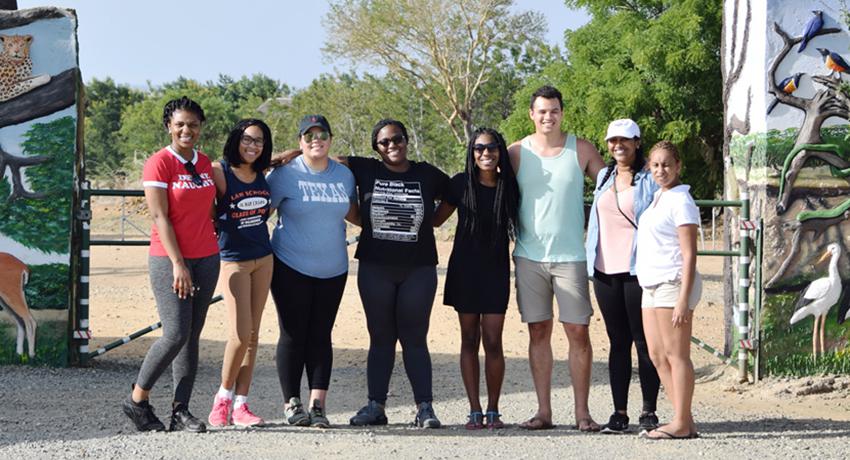
BLSA Service Trip, Tanzania 2017
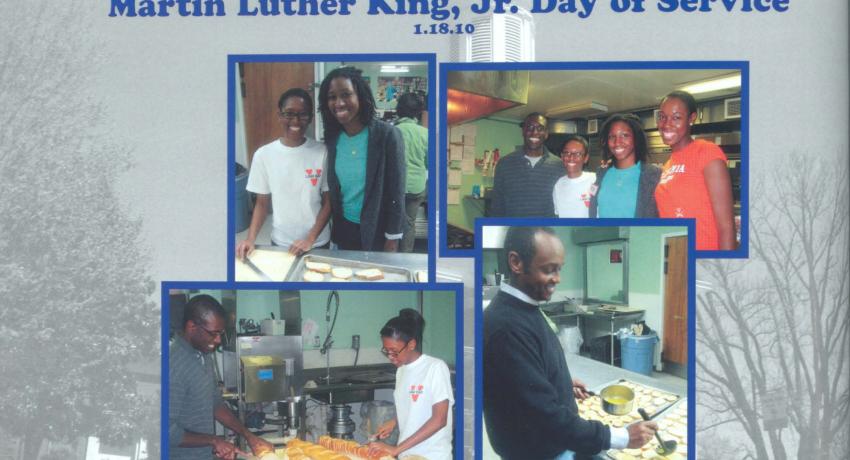
BLSA members participate in a day of service to commemorate Martin Luther King, Jr. Day, 2010
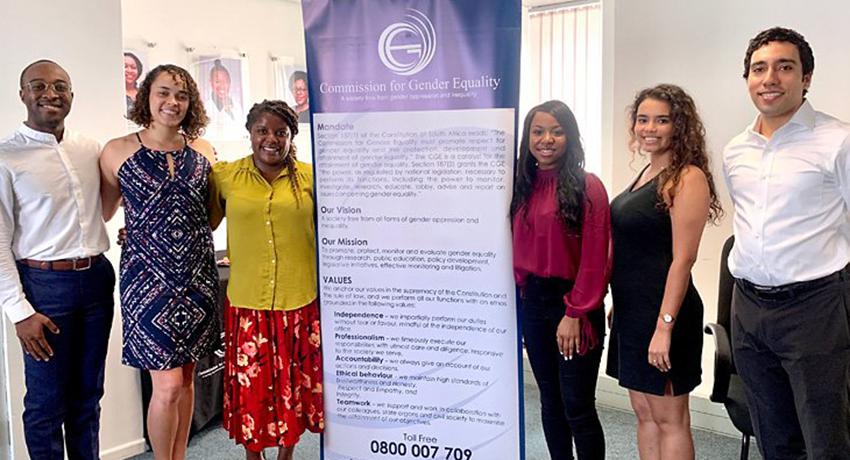
BLSA Service Trip, South Africa 2020
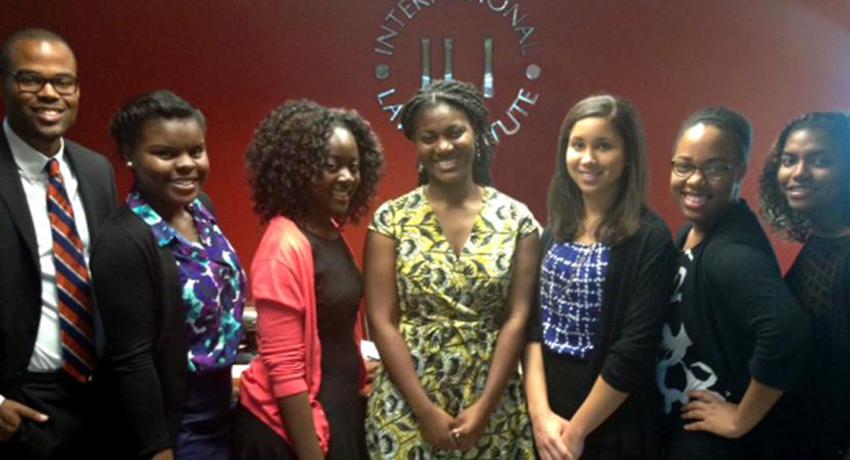
BLSA Service Trip, Uganda 2015
